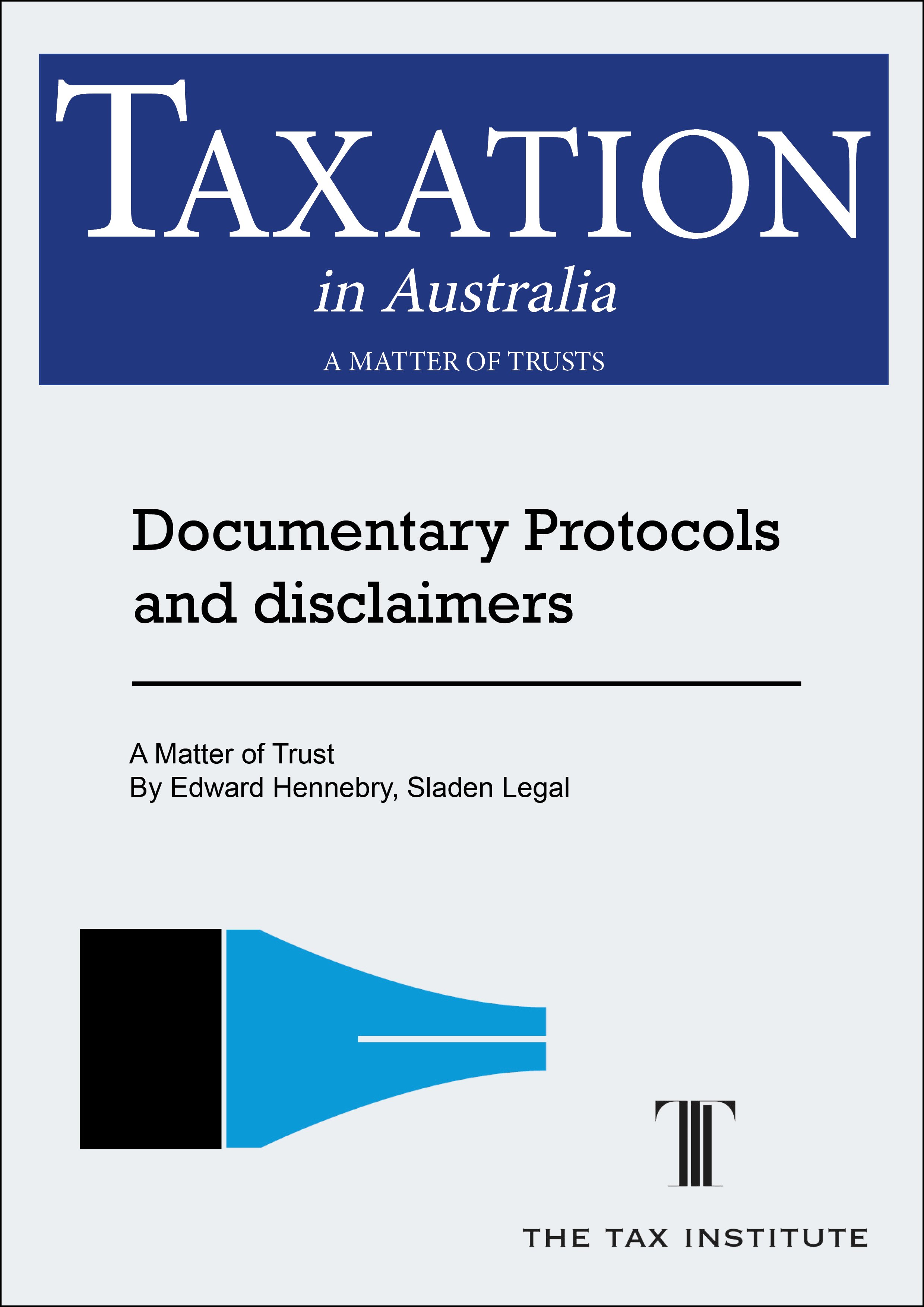SMSFs and bare trusts – not just for LRBAs
Many will be familiar with the use of bare trusts by SMSFs as part of a limited recourse borrowing arrangement (LRBA), but there are other ways in which an SMSF might invest via a bare trust, providing different structuring opportunities. This article considers the use of ‘non LRBA bare trusts’ by SMSFs and the superannuation law implications.
The powers of the court in varying trusts
Bendel Part III: summary of the parties’ submissions
The article explains the arguments contained in the parties’ submissions to the High Court in the appeal by the Commissioner of Taxation (Commissioner) from the Full Federal Court’s (Full Court) decision in Commissioner of Taxation v Bendel [2025] FCAFC 15 (Bendel).
Victory International– Hybrid unit trusts subject to landholder duty
Sladen Snippet - Bendel: special leave and updated DIS - ATO fires a warning shot
On 19 February 2025, the Full Federal Court handed down its decision in FCT v Bendel [2025] FCAFC 15. On 18 March 2025, the ATO applied for special leave and, on 19 March 2025, the ATO updated its interim decision statement (DIS) on the case.
We review the updated DIS below.
#Division 7A, #UPE, #Unpaid present entitlements, #Tax, #Trusts, #TD2022/11, #Bendel, #109D #Special leave #Decision Impact Statement
Bendel – UPEs as loans – are the curtains closed?
On 19 February 2025, the Full Federal Court, in FCT v Bendel [2025] FCAFC 15 (Bendel), held that an unpaid present entitlement (UPE) with a corporate beneficiary is not a loan under subsection 109D(3) of Division 7A of the Income Tax Assessment Act 1936 (ITAA 1936).
Courts’ supervisory powers and trust variations addressing incapacity of guardian and appointor
In the West Australian case of Dryandra Investments Pty Ltd v Hardie by her guardian Ian Yorrington [2024] WASC 248 (Dryandra case) the trustee sought orders, pursuant to section 90 of the Trustees Act 1962 (WA), that the Court approve and assent to variations to the trust deed of the Dryandra Trust (Trust).
Sladen Snippet - Proposed Licensing Regime for the Franchising Sector – chance to submit views
Sladen Snippet - PCG 2024/D2 - PSI and Part IVA
On 28 August 2024, the Australian Taxation Office (ATO) published Draft Practical Compliance Guideline PCG 2024/D2 (Draft PCG) on Personal services businesses and Part IVA of the Income Tax Assessment Act 1936.
Appointors sacking trustees to appoint themselves
Section 99B – TD 2024/D2 – you can’t always get what you need
Selling to a trust: is it only a matter of time?
Bare trusts, resulting trusts and dealings in land
A Matter of Trusts
A failure to document a trust relationship at the time of acquisition may not always be fatal.
Introduction
Typically, but not always, land is legally and beneficially owned by the person registered on the title. However, sometimes the legal owner owns the land as trustee, the terms of which are supported by a written trust deed.
In the absence of a written trust deed, your client may maintain that the land is owned pursuant to a “bare trust” and the person registered on the title is the trustee (the legal owner) holding the land on trust for a beneficiary (the beneficial owner, or owners if there is more than one beneficiary).
Where the bare trust relationship is undocumented, the client might be concerned as to whether expected dealings in respect of the land trigger undesired tax outcomes.
In particular, issues can arise when:
the parties wish to vary the land title deed to record the beneficiary on the title (ie remove the trustee from the title);
a party has passed away and there is uncertainty about whether the land forms part of their estate; or
a party asserts that they qualify for the CGT main residence exemption in respect of the disposal of the land (and dwelling).
Is the absence of a written trust deed or declaration of trust at the time of purchase fatal? As discussed below, not necessarily, as objective facts can be persuasive in supporting the intentions of the parties.
The full paper is available to Sladen Smart Members sign up/login here to continue reading.
Quy v FCT: less than 2 months in Australia … I still call Australia home
The Administrative Appeals Tribunal (Tribunal) has held in Quy v FCT [2024] AATA 245 that a taxpayer, who was physically in Australia for less than 2 months each year, was a resident of Australian tax purposes.
Documentary protocols and disclaimers
BBlood v FCT: section 100A, more guidance on tax avoidance purpose
The Full Federal Court in the BBlood appeal found for the ATO on section 100A and the taxpayer dividend stripping (albeit on a technical, non-substantive basis).
The 100A analysis was limited to ‘tax avoidance purpose’ with the Full Court holding that, in certain circumstances, the purpose of advisors can be relevant.
2023 VIC Tax Forum Family trust elections, trust losses, and family change
Guardian AIT: 100A or ATO’s Part IVA angel in disguise?
This time last year, we published an article querying whether the Federal Court decision in Guardian AIT Pty Ltd ATF Australian Investment Trust v FCT [2021] FCA 1619 (First Instance Decision) would ignite an administrative and judicial quest for clarity on the interpretation of section 100A of the Income Tax Assessment Act 1936 (ITAA 1936).




















